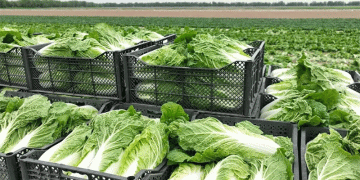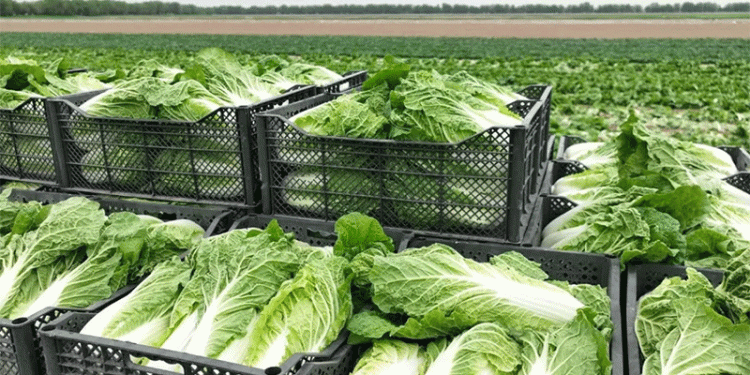In recent years, farmers in Maktaaral have significantly increased cabbage production, making it a key export crop, particularly to Russia. According to DKnews.kz, early-maturing cabbage was cultivated on 430 hectares using drip irrigation, with the first harvest already yielding 1,500 tons for export.
One of the leading farms, “Erezhep Ata”, harvested cabbage from 12 hectares, achieving yields of up to 300 centners per hectare (approx. 30 tons/ha). The selling price ranges between 170–190 KZT/kg (0.36–0.36–0.40/kg), demonstrating strong profitability.
Expanding Exports and Crop Diversity
The “Agrogruz” cooperative has established a cabbage collection point in N. Esentayeva village, streamlining exports to Russia. Meanwhile, farms like “Sabir” are diversifying with beetroot (7 ha), cabbage (10 ha), and melons (13 ha). Beetroot is expected to fetch 300 KZT/kg ($0.64/kg), further boosting farm revenues.
Cotton Farming Embraces Water-Saving Tech
This year, Maktaaral plans to sow over 35,000 hectares of cotton, with 4,000 hectares already planted. Of these, 800 hectares use drip irrigation—a method proven to reduce water usage by 30–50% while increasing yields (FAO, 2023).
One farm, “Sogdiana”, in collaboration with “BNK Group”, is implementing drip irrigation on 11.4 hectares, with 80% of costs (900,000 KZT/ha) subsidized by the government. This aligns with global trends where drip-irrigated cotton sees 20–35% higher productivity (World Bank, 2022).
Smart Farming Pays Off
Maktaaral’s farmers are proving that drip irrigation and crop diversification lead to higher yields, water savings, and export growth. With strong government support, the region is setting an example for sustainable and profitable agriculture in Central Asia.































